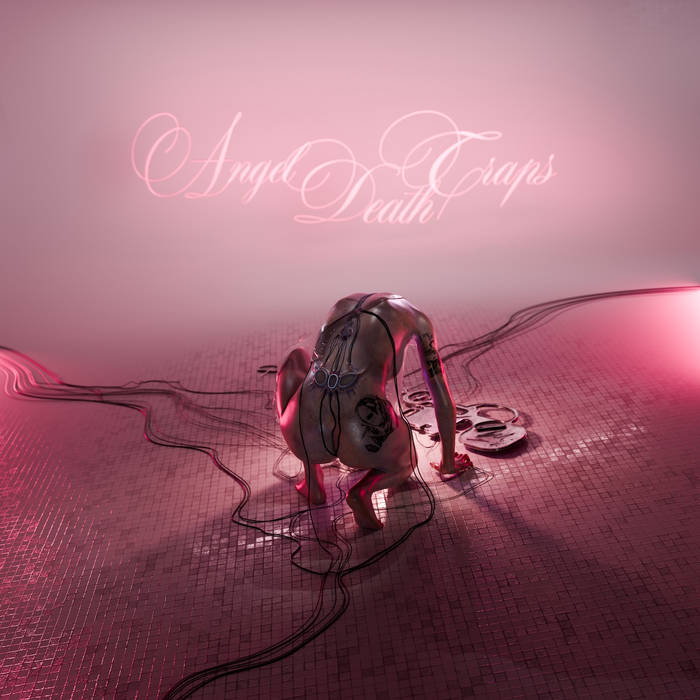There are no barriers in Alexander Schubert’s music. The German composer and professor aims to bring technology and music together, creating immersive experiences that challenge our perceptions of the sounds we hear. His practice is rooted in the idea of breaking down genres – something often heard in the classical composition world (and made famous by composers like the Bang on a Can trio or Max Richter). But Schubert carves his own niche with his creative use of technology, which has encompassed virtual reality, artificial intelligence and medical tools like EEG machines. With his latest album, Angel Death Traps, he takes these ideas even further, searching for his own vocabulary born from the space – or lack thereof – between acoustic and electronic. The resulting music is visceral and biting, a distorted pop imagination.
This album is a natural evolution for Schubert, whose works like Sleep Laboratory ventured into virtual reality to explore our perceptions of each other, while his numerous performance art pieces create an immersive technological and participatory experience. With Angel Death Traps, created in collaboration with NEKO3, a contemporary music ensemble equally dedicated to the exploration of technology and music, Schubert’s standalone music is presented in its most extreme form, a new realm discovered in the in-between.
This is, at its heart, a concept album, and Schubert executes well, particularly in his embrace of deterioration. He begins by establishing acute layers, and then lets them decay into mud. On ‘Emoticon Teardrop’, the opener, his music sounds eerie, made of just a couple of hums simmering in a pot with autotuned, robotic words. It is mellow, yet tense with anticipation that erupts with ‘no future’, a swarming techno pulse. By the end, ‘Green on a Black Screen’, the fine threads that held those earlier tracks together have ripped to shreds, leaving just the frayed, rough edges. It is a material representation of his ideas, an example of how a few more distortions, and a few more added layers of electronics, can alter how we hear and feel.
Yet much of Angel Death Traps is also patient, or resting. The album’s most intriguing moments are the ones in which not much happens – like the static grain that makes up the cycle’s backbone. Though so much of this music is about transformation, and its abrasive chaos, there are always moments of peace and reflection. It is a reminder that while alteration may require the force of tearing down walls, its end state may reveal something a bit softer.


